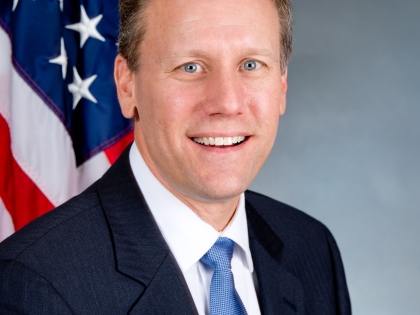
Year in Review: Landmark Legislation Passed in 2009
David J. Valesky
December 18, 2009
The past year has been a tumultuous one for New York State. The national fiscal crisis yielded a very difficult budget and deficit reduction actions, and an ill-fated coup mired the Senate in gridlock that marked one of the lowest points in the chamber’s history. Despite these challenges, the 2009-2010 legislative session was extremely productive with the passage of several pieces of landmark legislation, several of which I was pleased to author, that will improve the lives of Upstate New Yorkers.
One of my top priorities continues to be economic development. Several bills signed into law will encourage development, stimulate economic growth and improve the quality of life in Upstate New York. The Historic Rehabilitation Tax Credit and Main Street programs will encourage renovation and development in our cities and villages, promoting growth that will create jobs and ultimately decrease the strain on property taxpayers.
We helped small businesses by passing a law to create regional “one-stop” economic development centers where business owners can learn about state programs that benefit their businesses and receive help in navigating sometimes complicated federal, state and local regulations, including licensing and permitting.
And the creation of the Green Jobs/Green New York program, to be administered by NYSERDA, will mean 14,000 new jobs and no-interest loans to homeowners who want to make their homes more energy efficient and reduce their heating bills—a very attractive proposition, especially in Central New York.
In addition, we extended the Power for Jobs program, which provides low-cost power to companies in exchange for creating and retaining jobs. According to the New York Power Authority, the program supports 240,000 jobs across New York State.
One of my other major priorities is reducing the property tax burden on homeowners. This year, we made some progress by passing legislation that empowers voters to consolidate government entities. Sharing services and eliminating redundant, expensive and inefficient layers of government can reduce costs to residents.
We also passed legislation that relieves unfunded mandates on local governments, enabling them to cut costs by removing obstacles to efficiency and helping local municipalities save on health insurance, staffing, buying goods, highway maintenance and bond financing. These savings can and should be passed down to taxpayers.
Much-needed reform of the New York State pension system came in the form of a new law that creates a fifth pension tier for public employees. This will lower long-term costs to state and local governments, saving more than $48 billion over the coming decades.
The Senate is by no means finished on the issue of property tax reductions—we have a long way to go, but these three changes are a good first step.
As many of you know, I have been a longtime advocate for government reform, and I am very pleased that we made substantial progress this year. The Senate’s commitment to transparency was realized through a new web site, which expands the amount of information accessible to the public. Broad, bipartisan reform of Senate operations were adopted that will benefit all New Yorkers by diluting leadership control, empowering individual members and more equally allocating resources.
Also, we passed a law that places stringent public disclosure and reporting requirements on more than 1,000 public authorities (such as the Thruway Authority), fundamentally changing the way these authorities function. The legislation includes new oversight requirements and the establishment of an independent Authorities Budget Office as a public watchdog.
Many other important legislative initiatives were realized, including increased penalties for DWI with a child in the car, giving New York State the toughest DWI laws in the country; making Timothy’s Law--requiring insurance companies to offer mental health coverage—permanent; and closing a loophole in Jenna’s Law that had allowed serious criminals to get paroled earlier than intended.
In addition, I sponsored legislation requiring companies proposing electric transmission projects (like NYRI) to make funds available to help citizens and community groups have a stronger say on those projects.
The next legislative session begins on Jan. 6 with the State of the State address. The upcoming year will not be easy; we still face serious economic issues. I intend to work with my colleagues to rein in spending and invest strategically to best position New York State as we emerge from recession. My legislative priorities will continue to focus on economic development and job creation in Central New York.
I wish you a very happy holiday season and New Year, and, as always, I look forward to hearing your thoughts and ideas.
##
Share this Article or Press Release
Newsroom
Go to NewsroomSenator Valesky to Hold Free Senior Fair on October 11 in Madison County
September 21, 2017
Sen. Valesky to Host Community Resources Fair at Boys and Girls Club
September 15, 2017
Donald R. Waful
May 15, 2017
